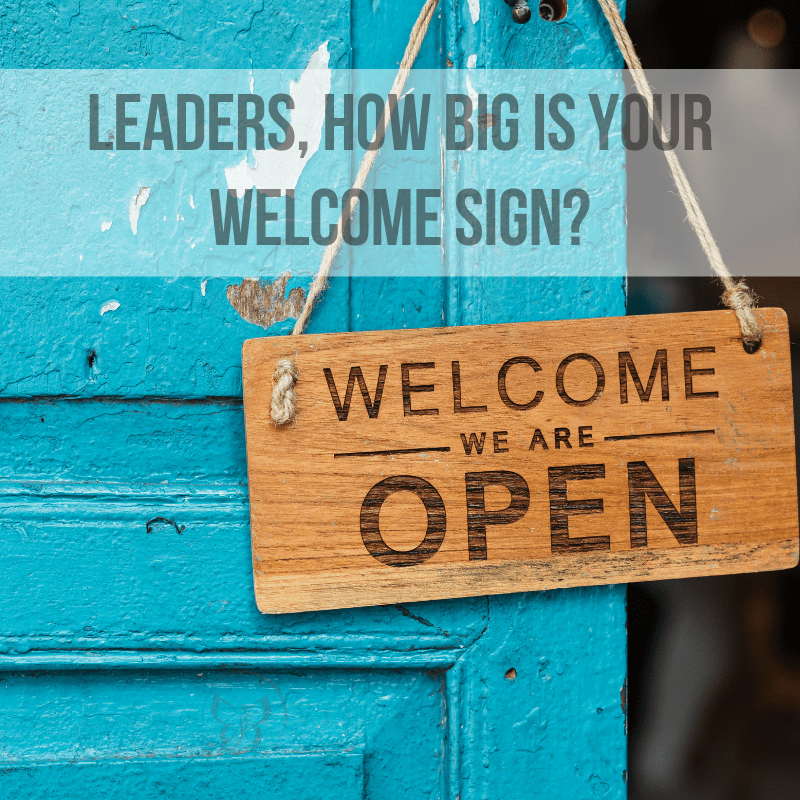
I was born in the south, and still have a very large family in the area. When I moved back down here 2 years ago, I thought I understood the culture.
There are some parts of it that are familiar. I get called “ma’am” a lot, new neighbors bring by a baked good to welcome you, and manners are de rigueur.
Yet there are new rules I never learned from a very southern mother. One of them I’ve found to be key as a leader, particularly as I engage with women. It’s the second offer.
The second offer
Most may be familiar with the polite offer. It’s the offer of coffee for a guest, when you don’t have any made. You offer it because it’s good manners. And your guest politely refuses, because they know you’re offering to be polite.
It is only when you’ve made a second offer that the guest feels comfortable accepting. Because the second offer means you really mean it, and it’s really no trouble (even if it is).
I had never heard or experienced this before in a work setting. I’m used to meaning what I say the first time, and those around me doing the same. So I offer once, and mean it genuinely, with the assumption others will take me up on the offer if they are interested.
Learning this rule has been a game changer. I have integrated it into my leadership and believe it goes beyond the south. It can transform our engagement, and increase diversity in our mentoring relationships.
Leader as mentor
At the beginning of the year, I took on the role of executive sponsor for our women in tech employee resource group. I was excited to step into the role, as one of the expectations included mentoring the board members, who are almost all women in tech themselves.
There are fewer women in tech, and even fewer leaders for us to look to for guidance and mentoring. No slight on having an ally as a sponsor, but if a woman is looking to progress into leadership in tech, having another woman available can be a huge help. One I didn’t have along the way and want to be for other women.
Most of the board members had engaged with me in a group setting, such as book club meetings or our annual kickoff. A few knew me personally and had engaged one on one, but it was mostly through the occasional run-in when we were all in the office.
As I started reflecting on what I wanted my role and engagement to look like in a remote world, I realized no one in the group was proactively reaching out. I had certainly offered and shared my excitement about being a mentor, yet no one was knocking on my door.
So I went knocking on theirs.
The welcome sign
Over the last few weeks, I’ve been scheduling 1×1 meetings with each of the board members. While group settings may feel safer for some to engage, it doesn’t provide much opportunity to get to know each other.
We trust people we know. We share with people we trust. If I want to mentor, and be mentored by, the board members…trust is key.
The conversations have all been different, based on the level of comfort and relationship going into the conversation. But all of the women had a similar reaction to my offer. Excitement.
What was different this time? I had offered before, so why are they excited now?
This time, not only did I offer, I gave them specifics on how to get on my calendar. Made sure they knew that they could come to me, and not to let concern about my schedule or role hold them back. I shared my passion for this work and that I wanted them to see me as part of their circle.
It was a polite offer, followed up with a second offer with specifics. It was a big welcome sign with a smile at the door guiding them in.
The conversations were all different, as the women are all different. Some need to consider how and when to engage, and this introduction might make them more comfortable speaking up in a group setting.
A few immediately started asking questions and asked for follow up sessions. Others walked away with ideas for the board or broader women in tech community.
The one thing they all had in common was that the second offer and larger than life WELCOME sign unlocked engagement.
Leader as human
I’m not a traditional executive. That “executive presence” thing eludes me and is something I’m not really interested in chasing. Instead, I believe that we need to refine what executive presence looks like, and it should look a lot more human and inviting than it tends to.
As I opened conversations with these women, they were careful. It’s to be expected. Yet, if leaders want to have deeper and more diverse engagement, we have to be willing to create safe spaces where someone doesn’t have to.
During the conversations, I let them see my excitement and passion for them and this work. Let them see my humanity. Maybe I shared something personal about living, working, and parenting during COVID. It could have been my dogs barking, or my son coming in and harassing me about something terribly important to a teenager.
For those that already had the chance to get to know me, the second offer was enough. For the others, this was the first chance for them to see behind my title. They were pleasantly surprised and I heard those magic words “You’re not at all what I thought.”
Part of creating an open door with a huge WELCOME sign is coming off the pedestal. Whether we like it or not, there’s a perception and expectation of leaders that puts us “above” others. We have to actively knock that pedestal down and put ourselves at the same level as those we want to serve. Or they won’t get to know and trust us, which limits our ability to engage.
Welcome to a safe place
The southern second offer is a good rule to live by for leaders at any level. We can’t assume because we extend an offer that our teams will take us up on it.
While this may be more prevalent in the south, I have seen this play out in other geographies…primarily with women. Up north, I found men were more likely to initiate an invite, or accept an offer the first time. Women tended to hesitate, be uncertain, or worry about how it will be perceived.
It’s time for leaders to open our doors really wide. Put blinking neon WELCOME signs above our doors. Stand in the opening with damn cookies if we have to, but if we want true equity in who we’re helping, we have to make sure it is crystal clear the door is open to everyone.
Take a hard look around, and look who’s coming through the door. Years ago, I looked and saw that it was almost exclusively men who were asking for help. That’s when I started being more proactive with creating women-centric leadership and mentoring circles. It’s why I’m such a supporter of employee resource groups.
If those coming in the door don’t have much diversity, it might be time to have some 1×1 discussions to build trust. To break down that pedestal and ensure folks realize there is a genuine interest in helping and mentoring more than the subset currently getting support.
Word will get around that this is a safe place. It may take a little while, but eventually that blinking neon sign will draw them in.








